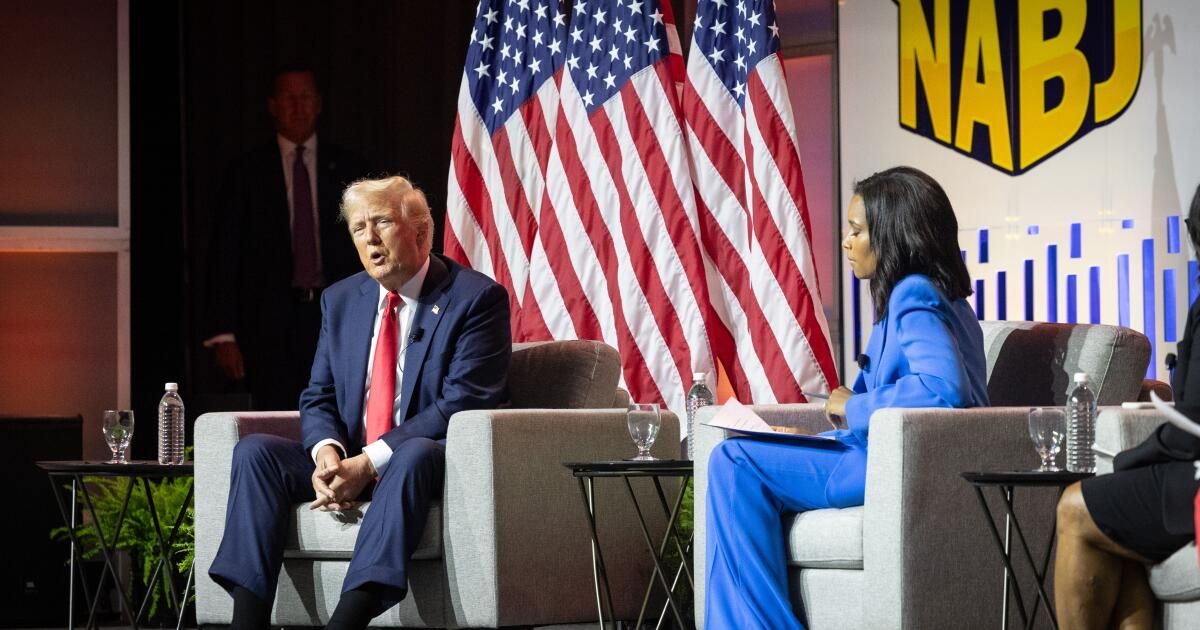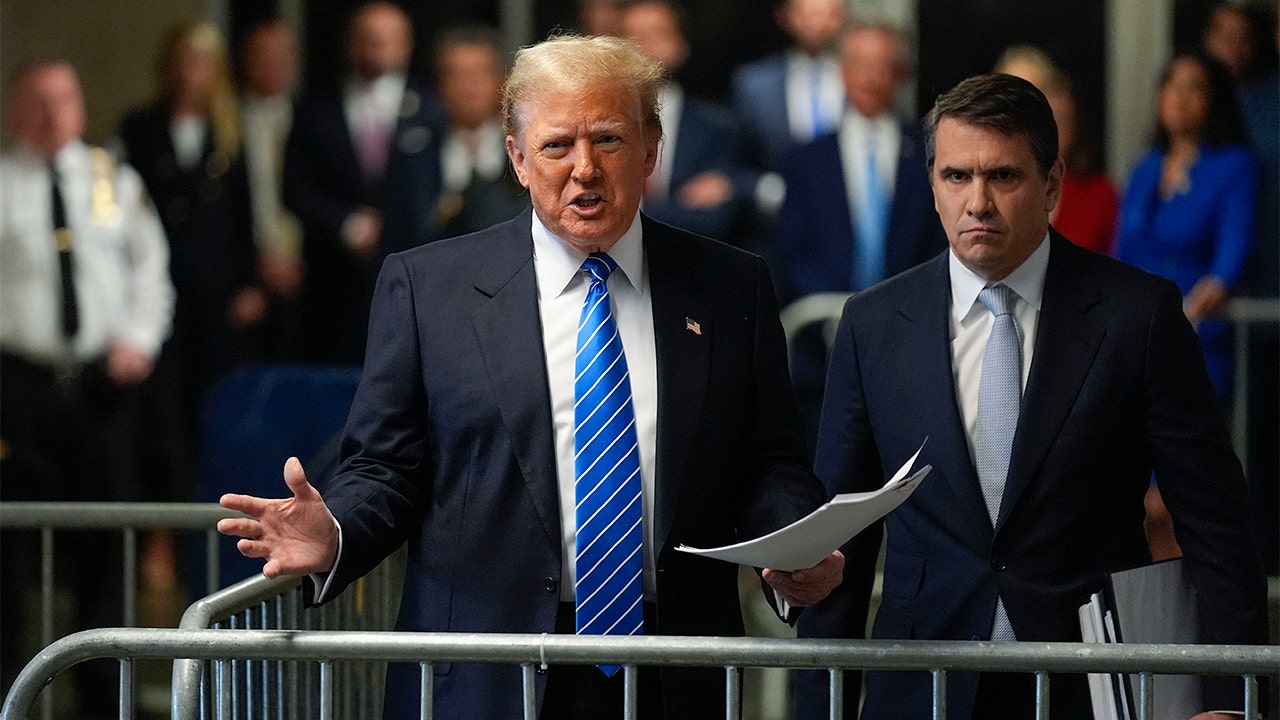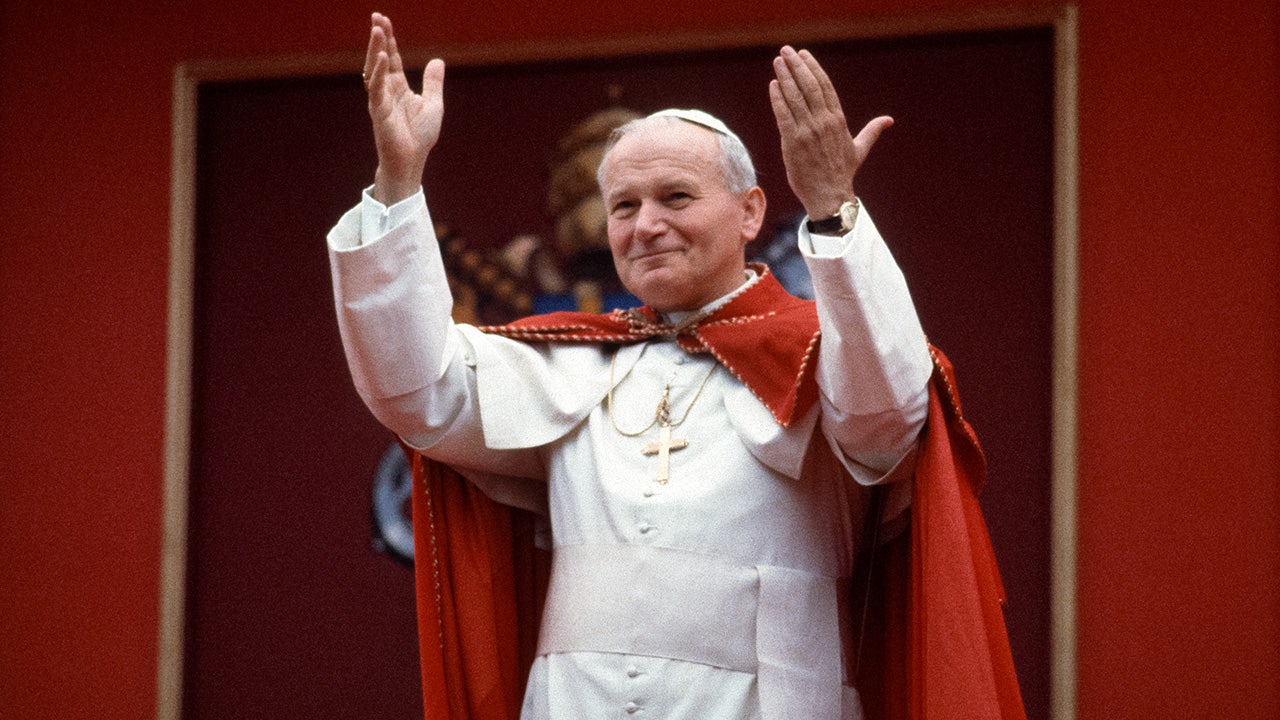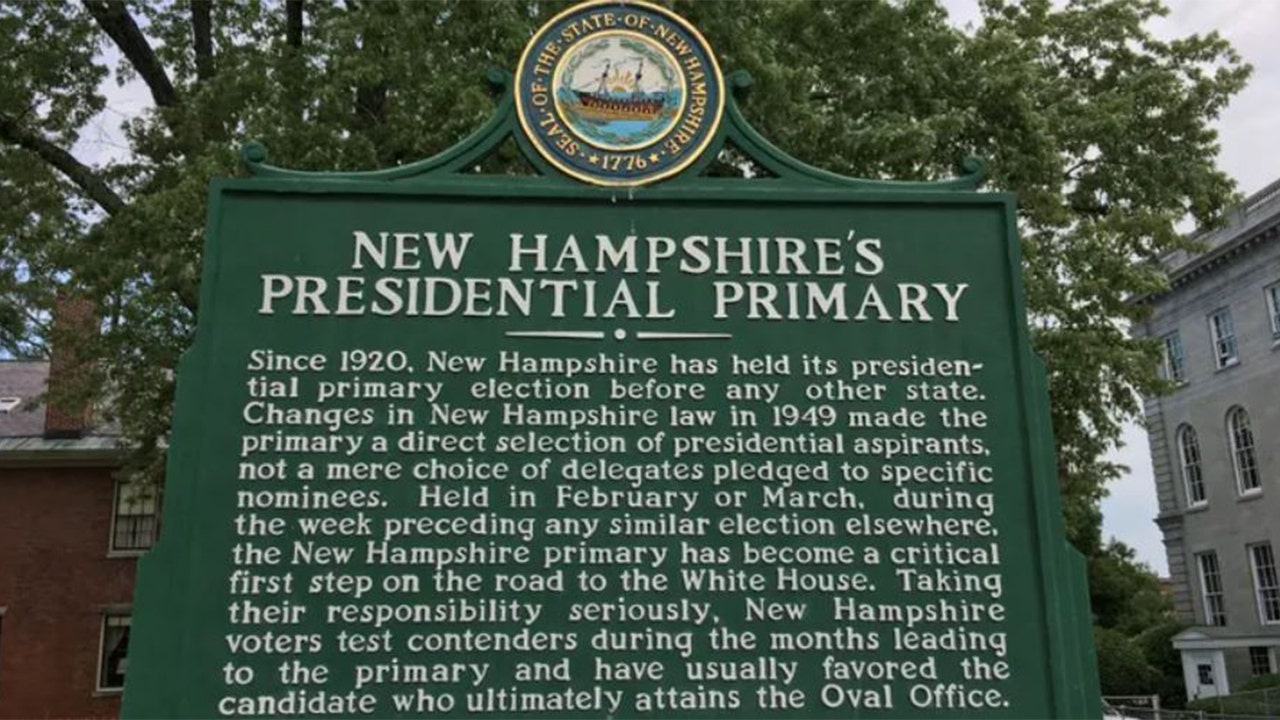In 2020, I wrote a column about Kamala Harris’s mixed-race identity in which I argued that a lack of critical thinking about race would make it easier for unscrupulous politicians to manipulate voters.
Four years later, that theory is being put to the test. Last week, on stage at the National Association of Black Journalists convention, former President Trump attempted to cast doubt on the authenticity of the vice president’s identity, suggesting she had switched races to drum up votes.
Trump is perhaps the last person on Earth whose racist comments I would take seriously. What he said was not only childish, but obviously insincere. In modern internet parlance, he is generating outrage, trolling, speaking in a hypocritical manner just to get a response. And I have to ask: is it working?
Even such a transparent attempt to dissuade Black and South Asian voters from supporting Harris has led to understandably angry reactions. Her comments were delivered crudely in front of an audience of Black journalists, a context that added insult to injury.
Now, while no liberal I know would be seriously swayed by Trump’s racial analysis (if you can even call it that), we are trapped in the news cycle he has created. And I regret every second that is spent taking Trump’s criticism seriously. Harris was born to a black father and an Indian mother, so she is both black and Indian. I won’t go into why people born to biracial parents are both rather than one, because it doesn’t need explaining.
Vice President Kamala Harris speaks at a Zeta Phi Beta sorority meeting on July 24 in Indianapolis.
(Darron Cummings/Associated Press)
This isn't critical race theory. This is just the birds and the bees. One plus one equals two.
When Harris appeared on “Asian Enough,” a podcast I co-hosted for the Los Angeles Times, she expressed impatience with the demand that she articulate a journey of racial discovery, largely because she believes she had no such story to tell.
“I didn’t go through an evolution in terms of who I am and what my identity is,” Harris said. “I guess the frustration I feel is that people think I should have gone through a crisis like that and that I have to explain it.”
I understand that you are skeptical of this story because it is too convenient, too ambitious, too uncontroversial. Sure, Harris’s childhood was probably not a post-racial dream, no more so than former President Obama’s. But if there is one place in America where a child can have grown up with secure ties to both halves of a mixed-race identity, it is probably Northern California in the 1970s, one of the most diverse and progressive places in the nation.
And I never really expected her to racially triangulate on our podcast. I expected her to do what every politician has done, which is present the identity that is most likely to win votes. When Trump is the alternative, why take the risk?
For me, it is more important to look at the assumptions behind Trump's criticism. That is, that in the United States we are supposed to vote for whoever puts the most money in our pockets and that we are supposed to believe that the person who puts the most money in our pockets is someone of our own race.
This implies that voting is not a democratic act but a transaction, like trying to choose the bank or credit card with the best terms and benefits. It redefines America not as a country but as a company, where voters choose not just a leader but a CEO, the best one being from our own tribe.
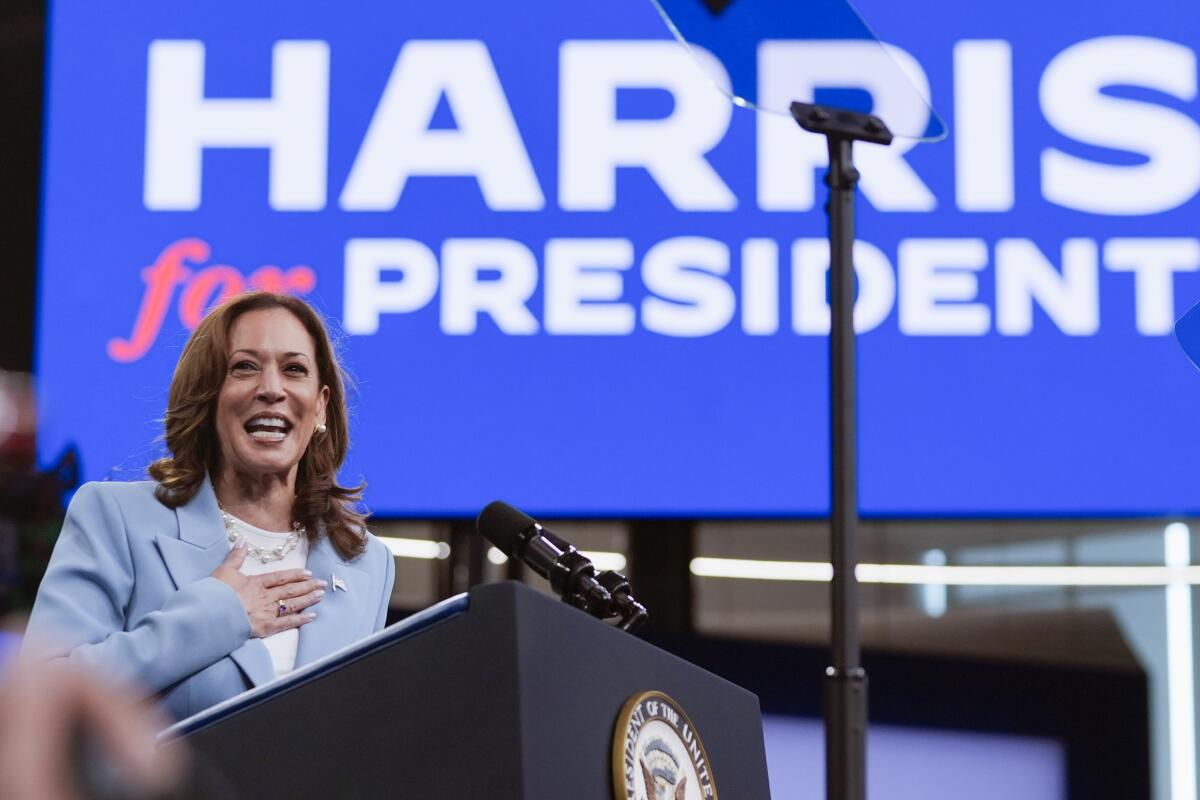
Vice President Kamala Harris, pictured July 30 in Atlanta, told an LA Times podcast in 2020: “I didn’t go through an evolution in terms of ‘who I am and what my identity is.’ I guess the frustration I feel is that people think I should have gone through a crisis like that and I have to explain it.”
(John Bazemore/Associated Press)
It is a popular saying that “you have to vote according to your pocketbook,” but am I supposed to believe the strange conclusion that my lot in life is improved because Harris is part Indian and in the US we are both considered Asian-American and therefore I will benefit in some way?
We must ask ourselves why Trump is trying to convince us that one plus one does not equal two. Who benefits from rigid tribalism about racial identity?
Definitely Trump and his supporters, but also anyone who doesn't want to spend time and resources thinking about or addressing race.
Whether it's campaigns that settle for one photo op per race, and no more, or politicians whose racial outreach ends up placing one person of each race at the back of their discourse, we are easier to marginalize and pacify if we put ourselves in such small boxes.
We need to resist this flattening wherever we see it. Let's treat Trump's comments as we would treat those of any other online troll: let's forget them as soon as possible.

